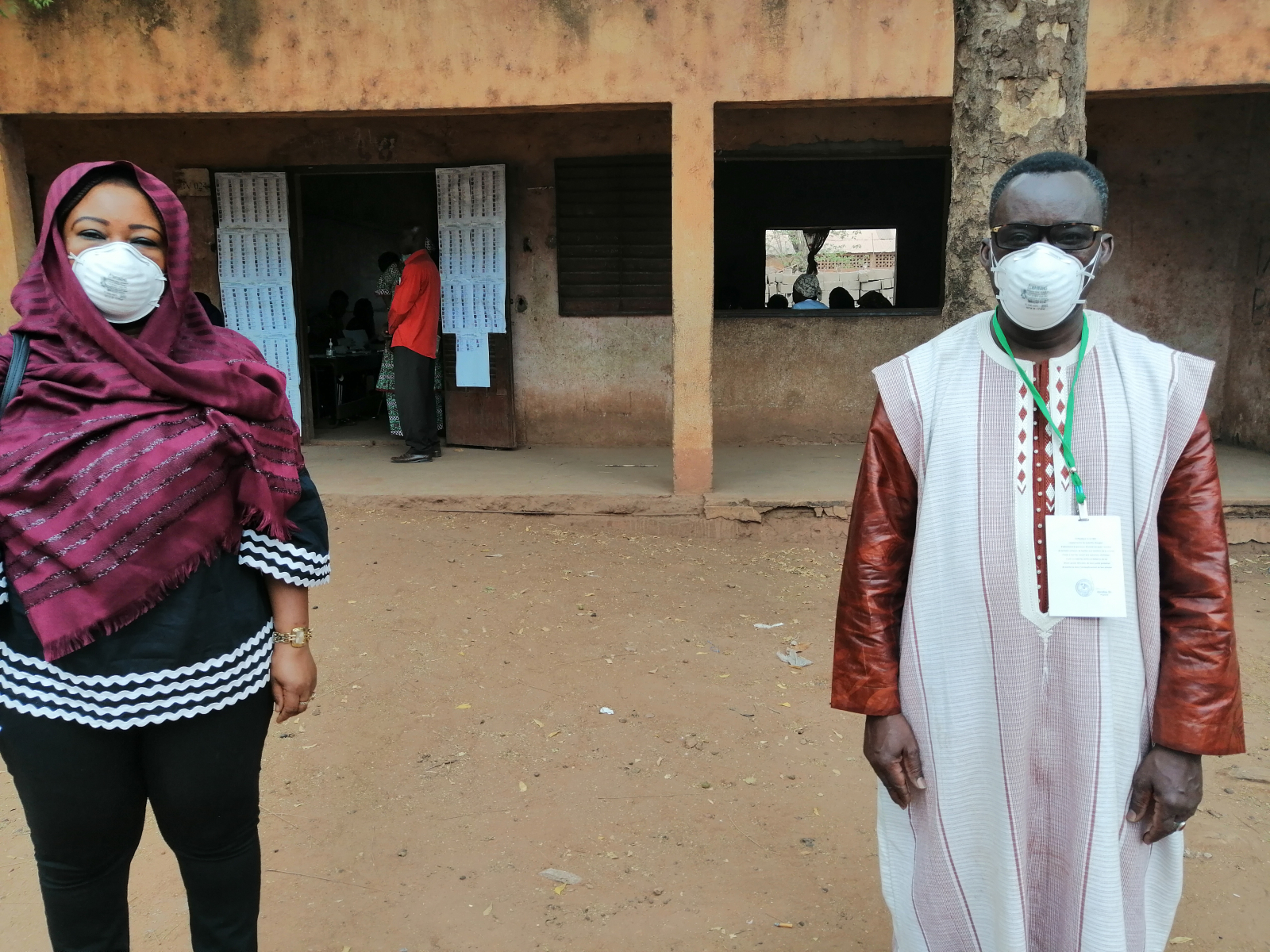
SHARE
ISSUES
On March 29, Mali held legislative elections as the country was coming to grips with the coronavirus pandemic. The official campaign period, which began March 8, was in full swing before the World Health Organization’s pandemic declaration forced the country to adopt restrictions on travel and large gatherings on March 11. These restrictions then tightened further to include school closings and a ban on assembling more than 50 persons in one setting. Neither declaration, however, mentioned the ongoing electoral process, creating confusion for voters, candidates and election authorities.
Prior to the outbreak of COVID-19, the NDI partner, the Coalition for Citizen Election Observation in Mali (COCEM), was already monitoring election preparations. COCEM immediately called on the authorities to clarify what the new decrees meant for the ongoing distribution of voter cards and campaigns, as well as for the March 29 and April 19 (run-off) election dates. Additional clarity was not just a matter of public health. These legislative elections had been postponed multiple times since November 25, 2018, and some Malians were concerned that another delay could provoke a potentially destabilizing constitutional crisis. The sitting legislature had already controversially extended its term beyond what the constitution and a court decision allowed, as Mali battles terrorist groups across much of the country. Moreover, one of the main recommendations of a recent national dialogue was for the country to hold legislative elections early in 2020. Allegedly, a few days before the vote, the government considered another postponement but received pushback from party leaders who had already invested heavily in campaigns that were nearing their end.
On March 25, Mali announced its first positive COVID-19 cases, and President Ibrahim Boubacar Kéïta faced the binary choice of allowing balloting amid the emerging illness or granting another, indefinite postponement of the polls. Election authorities announced just days before the poll that they would enforce social distancing measures and ensure voters washed their hands or used sanitizing gel at each of over 22,000 polling stations.
COCEM quickly adapted its election day observation forms so its observers could systematically report on whether measures to protect voters and poll workers from coronavirus were being applied. Using coded SMS reports from 1,500 proportionally deployed election monitors, COCEM found that while some locations observed social distancing and health and safety measures, they were not consistently applied across the country. According to COCEM data:
-
Hand sanitizer gel was available in only 51% of observed polling stations, while hand-washing stations were present and used in 80% of voting sites.
After polls closed, to respect social distancing, COCEM conducted a post-election press conference via Facebook Live for over 7,000 viewers. Although election authorities announced a voter turnout of 35.73%, in line with past elections in Mali, others report that fewer Malians actually went to the polls for fear of insecurity and the virus. As a result, COCEM recommends that authorities release results, polling station by polling station, to enhance the transparency and credibility of results. Further calling turnout into question, COCEM noted not just the coronavirus threat but also worrying security incidents that affected the vote in several regions, including the kidnapping of poll workers and snatching of ballot boxes. A COCEM observer was kidnapped and detained for many hours before being released, unharmed.
In approximately 20 percent of the electoral districts, seats were won outright in the first round of voting, while 45 districts—about 80% of the country—must hold run-off elections on April 19. Meanwhile, COVID-19 cases in the country have risen from two to 47 in less than two weeks, and there are concerns the virus could become much more widespread by the time of the run-off polls. Should the run-off election date hold, COCEM recommends that Malian election authorities do more to protect the health and safety of voters and poll workers by ensuring that all polling sites are adequately provisioned with masks, gloves, soap, water and gel, and have the ability to apply and enforce distancing measures.
COCEM’s experience illustrates important contributions that domestic election observers can make to how societies and governance institutions adapt to the coronavirus pandemic while ensuring that responses do not compromise democratic principles. Lessons learned from this election can help Malian authorities better prepare for future polls, which are seen as crucial to resolving conflict in the country and the greater Sahel region. In particular, in COCEM’s statement, the following needs are apparent:
-
Malian authorities make sure that social distancing orders or other coronavirus measures also proactively address how these will be applied to the run-off campaign and voting.
-
Poll workers are provided with needed protective equipment, and further trained and provided with guidance on how to manage polling operations during a pandemic.
-
Electoral security is enhanced so voters, poll workers, and observers are adequately protected at polling sites and social distancing measures are fully implemented.
By identifying challenges and quantifying needs in easily understandable formats, COCEM will help Malian authorities better determine the feasibility of a safe election on April 19, or whether a postponement is needed and what coronavirus preparations must be in place for election day. COCEM’s information and its observation of the run-off will also inform citizens so they are better able to assess the government’s handling of the coronavirus pandemic.
Beyond the run-off elections, Mali also expects to hold a constitutional referendum and long-awaited local elections in the near future. To that end, COCEM will continue to analyze its data, share its findings with the public and advocate for more transparent, accountable, credible and safe election processes. In the meantime, barring a postponement of the run-off, COCEM continues to prepare for April 19 by identifying measures it needs to take to ensure the safety of its volunteers and the overall integrity of the election.


